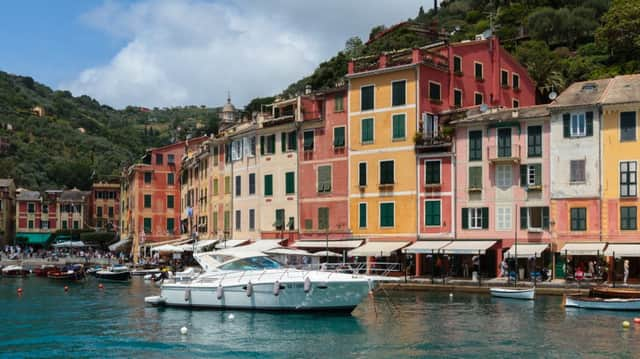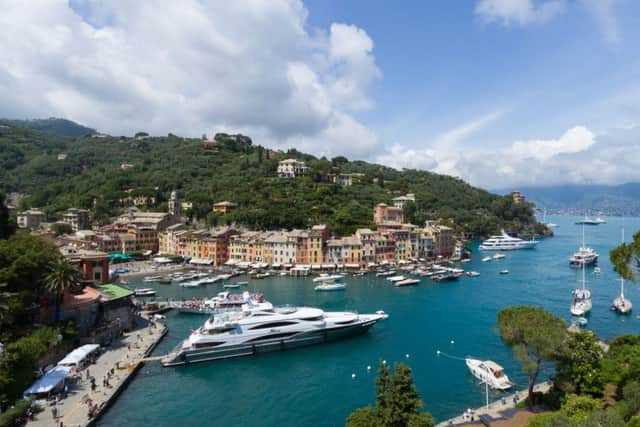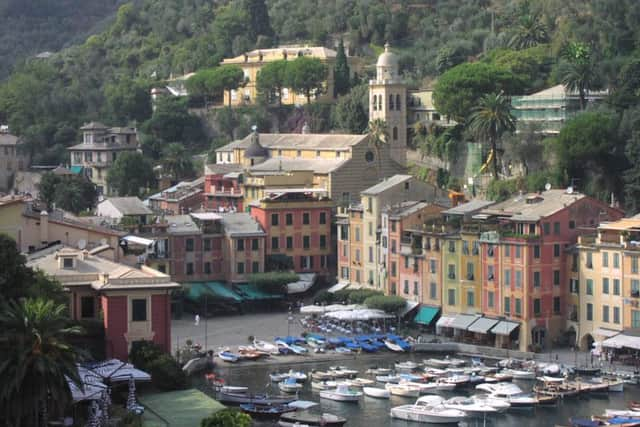The Glaswegian who saved an Italian village from the Nazis


Born in Glasgow to a wealthy Scots family, von Mumm became a folk hero for her actions in 1945 at Portofino, near Genoa.
The village is today one of Italy’s most upmarket tourist destinations. Visitors from around the world fall in love with its picturesque harbour, traditional coastal buildings and variety of restaurants.
Advertisement
Hide AdAdvertisement
Hide AdBut life could have been very different for Portofino if its historic heart had not been saved from destruction during the dying days of World War Two.


As the occupying Nazi army was pushed back by the invading Allies from the south, the local commander received an order to destroy the village and block its natural harbour.
It was then Jeannie, a Portofino resident since 1920, sprang into action. She had previously lived in Germany and was fluent in the language - she had no fear of speaking to the officer in charge.
Her adopted daughter, Käthe Watt-Wolff, witnessed the conversation that followed between von Mumm and Commander Ernst Reimers.
“Frau von Mumm brought to mind the monster of his plan,” she later wrote. “She told him that he would violate the laws of humanity, and that this atrocity would return like a boomerang to his own head.”


Portofino was spared as the Nazi army retreated north.
But who was this remarkable woman?
She was born Jane Watt in 1866 to William Watt, a merchant, and his wife Jane Chalmers Watt.
The prosperous family had moved to Germany by the 1900s, where Jeannie published a successful book on women’s fashion.


Advertisement
Hide AdAdvertisement
Hide AdShe remained in the country following the outbreak of war in 1914 and married a renowned German diplomat, Alfons Mumm von Schwarzenstein, in Dresden in 1918.
Alfons was 59 at the time of his marriage and a pillar of German high society. He had enjoyed an illustrious career as an ambassador for the German Empire in Beijing and later Tokyo.
It was through his work that he came to know Portofino, and decided it would make a suitable place to retire.


He bought a rambling medieval castle - Castello San Giorgio - in 1911 and set about restoring it.
Such was his standing in the community that he was made an honorary citizen in 1914.
The von Mumms moved into the castle permanently in 1920 following Alfons’ retirement from the diplomatic service.
Tragically, he died just four years later - leaving Jeannie a widow at the age of 58.
Advertisement
Hide AdAdvertisement
Hide AdRather then return to Germany, where the name von Mumm still carried considerable clout, or return to her native Scotland, she decided to stay in Portofino, where she remained for three decades.
She was made an honorary citizen in 1949 in recognition of her role in saving the village.
The letter from the local mayor read: “It is my pleasure to inform you, that the council with the agreement of all the residents, has decided to name you an honorary citizen.
“With your courageous perseverance you prevented Portofino from being destroyed by the German Armed Forces Command.”
Jeannie died in 1953 and was buried in the local Protestant churchyard, where a plaque commemorates her as “the Saviour of Portofino”.
